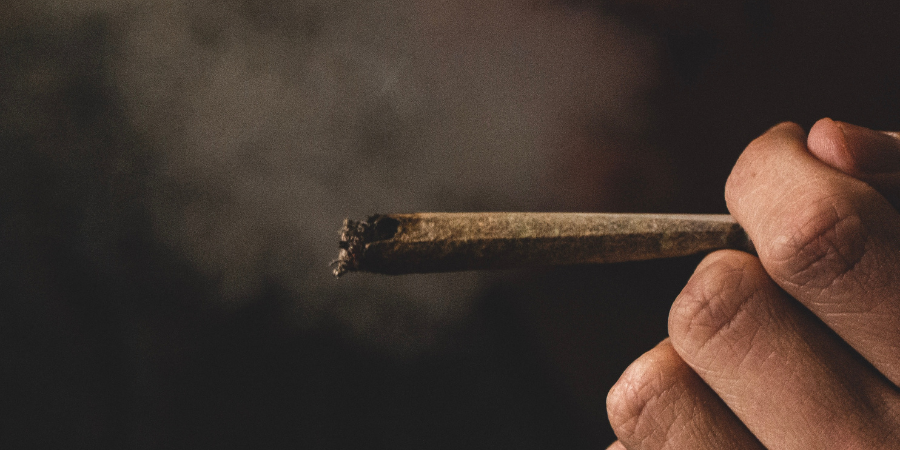The desire to experiment and rebel is part and parcel of adolescence, and during this transitional period of our lives, we are exposed to a wide variety of temptations, including alcohol and illicit drugs. However, what many young people do not know is that abusing these substances can be very dangerous, with the potential for alcohol addiction and substance abuse remaining a very real possibility. With 24% of eleven to fifteen-year-olds reported to having tried drugs, and 22% having been drunk in the past month, drug addiction is an ever-growing problem that continues to impact the health and wellbeing of young people.
If you are a young person who is worried about your own substance abuse, or a parent or teacher with concerns, help is available. Here, we outline the causes of substance abuse in children, the signs to look out for, and advice on how to start a conversation about substance abuse.

Why do children start abusing substances?
The likelihood of a child abusing substances and developing an addiction depends on a number of behavioural, emotional, and environmental factors. These may include:
Signs of substance abuse in children
Spotting the signs of substance abuse in your child can be complex. During our teenage years, we are already going through a lot of different changes, both physically and mentally. The same changes in mood or behaviour can also present themselves alongside substance abuse, and so it is often difficult to know the actual cause.
Some early warning signs that your child is abusing substances include:
- Decrease in academic performance
- Frequently absent from school or playing truant
- Red, bloodshot or watery eyes
- Large or small pupils
- Frequent health complaints – feeling nauseous, body aches, fatigue, etc.
- Social and legal issues – fighting, vandalism, stealing, etc.
- Reduced cognitive function and memory problems
- Loss of interest in formerly enjoyed hobbies and activities
- Changes in friendship groups
- Changes to eating and sleeping habits
- Changes to behaviour – significant changes in mood or personality
- Feelings of loneliness or depression
- Poor hygiene
- Self-harming behaviour
- Smell of alcohol on their breath
- Smell of cannabis
If you have noticed any of the above signs of substance abuse in your child, it is important to acknowledge them and act quickly. Substance abuse in children is not just a phase, and the earlier you respond to your concerns, the easier your child’s recovery will be. If you are worried about your child’s substance abuse, call our team today for support.

The dangers of substance abuse in children
The younger a child is when they start abusing substances, the higher the risk for serious ramifications to their health and future prospects. In fact, fatalities associated with drug and alcohol misuse represent one of the leading preventable causes of death for children and teenagers in the UK.
Children may expose themselves to harmful situations while abusing substances, putting them at a higher risk of contracting sexually transmitted diseases like HIV. They are also vulnerable to accidents whilst under the influence due to slowed reaction times or hallucinations.
Studies show that substance abuse in young people also impacts brain development and can lead to abnormalities in brain functioning, including decreased neurocognitive performance, poorer white matter quality, changes in brain volume, and abnormal neuronal activation patterns. Not only will growth and brain development be hindered, but the abuse of substances can also contribute to problems later in life, such as heart disease, high blood pressure, and sleep disorders.
Substance abuse in children and teenagers carries with it an increased risk of underachievement at school, delinquency, teenage pregnancy, and mental health issues, including depression.
Advice for young people
If your substance use is starting to get out of control, it is important that you do not wait to seek help. It can be really hard to start a conversation and open up about substance abuse, especially if you think your loved ones or teacher will be angry or disappointed. As a matter of fact, it is more likely that they will want to support you as you go through treatment. When you do make the decision to talk to a trusted adult, you may feel like a weight has been lifted off of your shoulders.
If speaking to someone face-to-face is still a little too nerve-wracking, thankfully there are lots of charities that can offer advice over the phone and get you the help you need.
Advice for parents
If your child is struggling with substance abuse and addiction, it is vital that you work on building a solid relationship with them. You should aim to strengthen your bond and encourage your child to confide in you, letting them know that you are always there if they need support.
- Educate yourself on substance abuse and treatment options
- Ask your child open-ended questions with the goal of learning more about your child’s substance abuse, for example, “Why did you start using drugs?”
- Actively listen to your child
- Avoid being judgemental
- Focus on the positives, not the mistakes
- Avoid being overly emotional – if you become too upset, stop the conversation and come back to it another time
- Set clear boundaries and stick to them
- Don’t be afraid to ask for and accept help
As a parent, it can be tough to navigate these tricky conversations, and we often feel an overwhelming sense of guilt, frustration and worry. To avoid burnout, it is crucial that your needs are also met during this time. You can achieve this by practising self-care – spend time doing activities you enjoy, look after your own mental and physical health, and join a support group. Ensuring your own wellbeing will better assist in your capacity to help your child.

Advice for teachers
Identifying drug misuse in students can be difficult, as changes in their behaviour may be caused by a range of other factors. It is therefore important not to jump to conclusions, and instead focus on providing support and an open dialogue with the student. Some things you should consider before entering a conversation include:
- Report your concerns to the headteacher or relevant staff member
- Consider the best person to approach the student – do they have a good rapport with a specific teacher?
- Ensure the student is not under the influence of substances at the time of the conversation
- Ensure the conversation is private and allow enough time for a full discussion
- Respect their right to privacy and don’t force the conversation
- Maintain a friendly and non-judgemental manner
- Offer information to the student – for example, leaflets or websites to read
- Refer the student to a specialist if required
- Continue to monitor the student
Many young people will be reluctant to accept help; they might feel ashamed, guilty, embarrassed, or they might not recognise that they have a problem at all. Teachers and school counsellors, however, have an opportunity to make a difference and can help to push them towards recovery. In fact, the most common route for young people to receive specialist treatment is via a referral from education services, with around 32% of youths entering treatment this way. For those that want to bring the topic to life, UKAT offers a free addiction awareness programme for schools to educate students on the realities of drug dependence and how to seek support.
Contact us
Substance abuse and addiction can be a lonely and unsettling time, not only for the individual themselves, but for the people around them too. The good news is that addiction is treatable, and with hard work and dedication, recovery is possible. If substances are taking their toll on your family, contact our team of professionals today who can guide you on the next steps.
If you are worried about a young person under sixteen, here is a list of resources and charities you can call for assistance.


